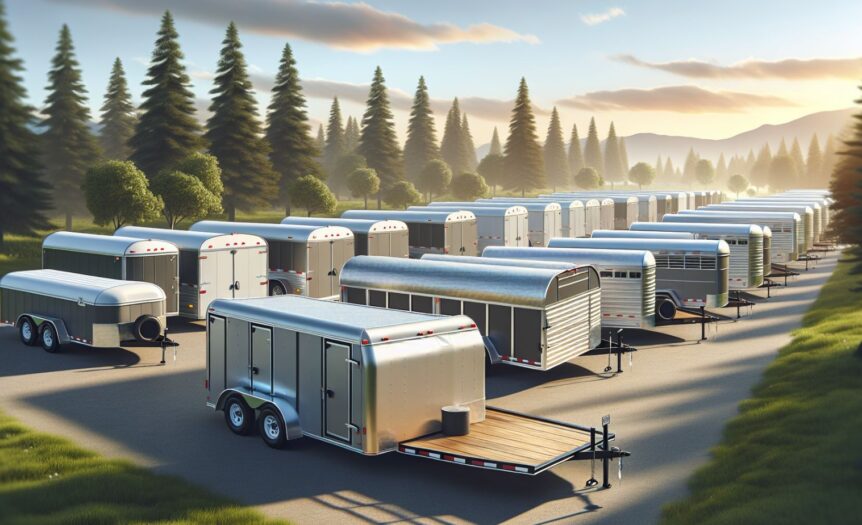Choosing the right trailer size is crucial for a safe and efficient outdoor adventure. Understanding your vehicle’s capabilities and your specific requirements ensures you select the perfect match. This guide will walk you through the key considerations to make an informed decision.
When it comes to enhancing your outdoor living space, selecting the appropriate trailer size can make all the difference. Whether you’re transporting garden supplies or planning a camping trip, matching your trailer with your vehicle’s towing capacity and your needs is essential. This article will help you navigate through the choices available, ensuring you pick the ideal trailer for your purposes.
Assessing Your Towing Capacity
Before deciding on a trailer, it’s vital to understand your vehicle’s towing capacity. This information can typically be found in your vehicle’s owner’s manual or on the manufacturer’s website. Exceeding this limit can lead to severe mechanical issues and compromise safety. Local companies will be able to advise you the right one for your needs, such as Wallace Trailers which is located in the heart of middle Tennessee. Even if you are not close, there will be experts in your locality who can help ensure that the weight of the trailer, including its cargo, falls within your vehicle’s towing limits.
It’s also important to consider the Gross Combined Weight Rating (GCWR) of your vehicle, which includes the weight of your vehicle, passengers, cargo and the fully loaded trailer. This figure provides a more comprehensive understanding of your vehicle’s capabilities. Remember that factors such as terrain and weather conditions can affect your vehicle’s towing performance. For instance, towing in mountainous areas or during adverse weather may require you to stay well below the maximum towing capacity to maintain safety and vehicle longevity.
Understanding Trailer Types
Trailers come in various shapes and sizes, each created for specific tasks. Utility trailers are versatile and suitable for transporting general items like garden tools and supplies. Enclosed trailers provide protection from weather elements, making them ideal for valuable or sensitive equipment. Additionally, specialized trailers such as those for boats or horses cater to more specific needs. Knowing what you’ll primarily use the trailer for helps narrow down your options significantly.
When exploring trailer types, consider the material composition as well. Aluminium trailers are lightweight and resistant to rust, making them ideal for marine environments or frequent use. Steel trailers, while heavier, offer durability and are often more cost-effective. Fiberglass options provide a balance between weight and durability, with the added benefit of being easier to repair. Each material has its pros and cons, so weigh these factors against your specific needs, frequency of use, and storage conditions to make the best choice for your situation.
Considering Weight Distribution
Weight distribution is another critical factor when selecting a trailer. Properly balanced trailers ensure safer driving experiences by reducing sway and improving control. It’s essential to distribute the load evenly across the trailer’s axles. Overloading one side can cause instability and increase wear on tires and suspension components. Investing in weight distribution hitches can further enhance safety by evenly distributing tongue weight across both axles of your vehicle.
Understanding tongue weight is crucial for proper weight distribution. The tongue weight, which is the downward force exerted on the hitch ball by the trailer coupler, should typically be about 10-15% of the total trailer weight. Too little tongue weight can cause trailer sway, while too much can overload the rear axle of your towing vehicle, affecting steering and braking. Using a tongue weight scale can help you achieve the right balance. For heavier loads, consider a weight-distributing hitch with integrated sway control for optimal stability and handling.
Evaluating Size Requirements
The size of the trailer should match both your vehicle’s capacity and your specific needs. If you’re hauling large garden equipment like lawn mowers or bulky patio furniture, you’ll need a larger trailer with sufficient space. Conversely, smaller trailers are more manageable and fuel-efficient if you’re transporting lighter items. Always consider both current and future needs to avoid having to upgrade later on.










